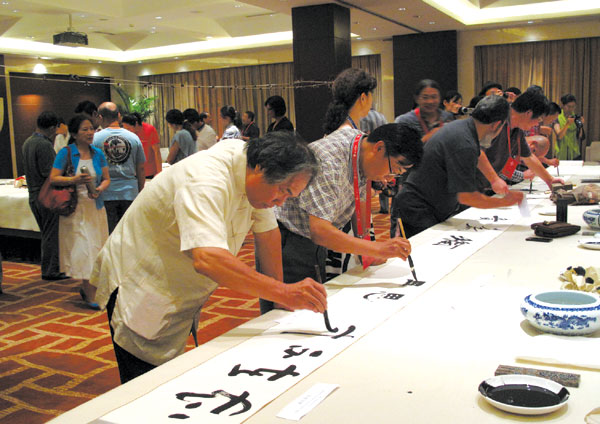
 |
|
Calligraphers from Taiwan and the mainland write excerpts from The Analects at the Third Cross-Straits Chinese Character Art Festival in Zaozhuang, Shandong province. Mu Qian / China Daily |
People in Taiwan province use the term woxin to indicate the feeling of warmth and happiness; but the same word means the exact opposite, "upset", on the mainland.
Tudou, which means potato on the mainland, refers to peanut in Taiwan.
People who travel between Taiwan and the mainland are often puzzled by such differences in the vocabularies used on the two sides of the Taiwan Straits.
In an effort to solve the problem, a group of literary people from Taiwan and the mainland compiled A Cross-Straits Dictionary of Life, which explains common vocabularies from Taiwan with their equivalents on the mainland.
Designed to be a manual for mainlanders who travel to Taiwan, the dictionary was released by the Culture and Art Publishing House at the Third Cross-Straits Chinese Character Art Festival, which concluded recently in Zaozhuang, Shandong province.
Related: First to the Outback, then back to Xinjiang
Presented by Chinese National Academy of Arts and the General Association of Chinese Culture of Taiwan, the festival gathered a group of experts from both sides of the Straits to discuss the "origin and evolution of Chinese characters".
According to Yang Tu, editor-in-chief of A Cross-Straits Dictionary of Life, the differences in the vocabularies of Taiwan and the mainland can be attributed to historical, social and cultural reasons.